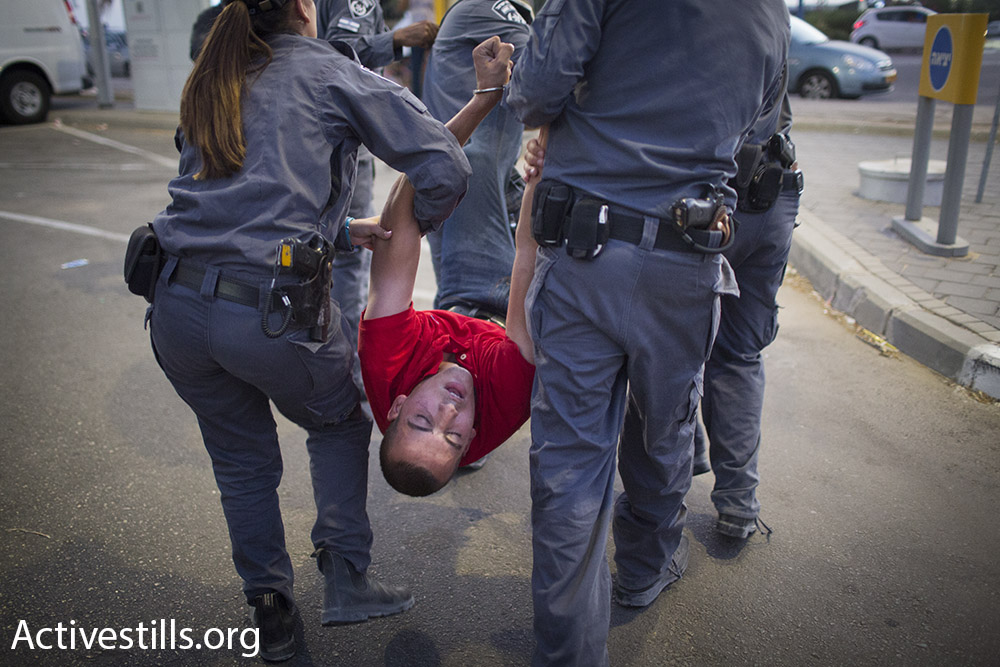Jewish and international observers are constantly having to catch up to what Palestinians have always known about Israel. This needs to change.

In his 1963 book The Fire Next Time, James Baldwin wrote a profound personal letter to his young nephew (also named James), in which he poignantly described the dehumanizing world that Black people must face in America:
“You were born into a society which spelled out with brutal clarity, and in as many ways as possible, that you were a worthless human being. You were not expected to aspire to excellence: you were expected to make peace with mediocrity. Wherever you have turned, James, in your short time on this earth, you have been told where you could go and what you could do (and how you could do it) and where you could live and whom you could marry. I know your countrymen do not agree with me about this, and I hear them saying ‘You exaggerate.‘” [emphasis mine]
This passage captures a critical component of racial inequality. When people under oppression try to articulate the injustice they face to the society in power, their narratives are actively ignored, undermined, and delegitimized as absurd, false, or unimportant. To this day, Black Americans are regularly told that they “exaggerate” when they warn about white supremacists, police brutality, job discrimination, and other racial problems. This feeling of dismissal, expressed by Baldwin 55 years ago, resonates powerfully with the Palestinian experience.
The recent outrage over the political interrogations of prominent left-wing American Jews like Simone Zimmerman and Peter Beinart is an important and much-needed development. But for many Palestinians, it can be very frustrating to watch. Despite thousands of Palestinians, Arabs, and Muslims being detained, interrogated, humiliated, threatened, deported, and banned for trying to enter Israel or the occupied territories, hardly any of them could garner the same local or international attention, or stir the same level of shock, among people with power and privilege who claim to be concerned about democracy and civil rights in the country.
Many Israeli and American Jews who have been subjected to such invasive practices, including those recently detained, have rightly stressed that what they faced was a mere fraction of what Palestinians and others are put through. However, the international reactions they received (through no fault of their own) are a jarring reminder of how “worthless” Palestinians and people of color are made out to be. When non-Jews denounce the state’s undemocratic behavior, they are accused of lying or “exaggerating” for nefarious reasons; but when a Jewish person makes the same claim, they are defended and commended for exposing such troubling practices.

This double standard over who has the “permission to narrate” Israeli policies, and the permission to be heard, is systemic. For decades Palestinian activists and human rights organizations, both in the occupied territories and in Israel, were routinely targeted by security authorities and denounced as “terrorists” and “strategic threats.” However, it was not until the government began harassing critical Jewish-led groups like B’Tselem and Breaking the Silence, and barring entry to foreigners accused of endorsing BDS, that observers suddenly became alarmed by Israel’s “authoritarian” and “McCarthyist” tendencies.
The same pattern goes beyond the issue of political dissent. Since the 1990s, for example, many Palestinians warned that the Oslo Accords were being used to tighten Israel’s grip on the West Bank and to create debilitated bantustans instead of a viable independent state. This has increasingly become an accepted fact today. Years after Palestinians likened their “one-state reality” to an apartheid regime, mainstream analysts and policymakers are finally acknowledging that this once taboo label may be true — even more so after last month’s passing of the Nation-State Law.
These problems should be raised not to stake some petty claim that Palestinians were “first” to know these things, nor should it imply that every Palestinian opinion should be accepted at face value (Palestinians are not a monolith). They do, however, require Jewish and international observers to recognize how they are constantly having to catch up to what the conflict’s primary victims, as a collective, have always known. Had Palestinian voices been taken more seriously, meaningful political and social pressure could have been applied to prevent not just the current attacks against left-wing Jews, but against all Palestinians who have been on the frontlines of Israel’s most brutal practices.
Smarter activism, conscious politics, and moral consistency thus require critics to prioritize and listen to the voices of Palestinians in order to confront the destructive trends unfolding inside the country. As banal as this sounds, it cannot be emphasized enough. The fact that it takes a handful of Jewish activists to “legitimize” what thousands of Palestinians have said all along reflects a deep and dangerous blind spot. It tells Palestinians that their narratives, by mere virtue of their identity, makes them untrustworthy, in need of separate scrutiny, and less worthy of attention. Palestinians are not “worthless” narrators of their oppression and they are tired of being told that they “exaggerate,” only to be proven right years later.

